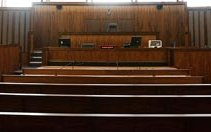Carson Yeung could be out of prison sooner rather than later after the Hong Kong court of final appeal ruled that the test used to convict Mr Yeung has the wrong standard of proof.
It may come as a surprise to you, but criminal courts do not work to show everything in a case beyond all reasonable doubt. Indeed that is just the standard by which the jury must be satisfied as a whole to convict.
To establish various elements of a crime, the courts often will place a burden of proof on the defendant or prosecution to prove a certain aspect of what is being considered. The degree of proof they will need will defend on the nature of the crime and the severity of the offence.
e.g if the crime carries a large prison sentence, it will be for the prosecution to prove the aspect of the crime, to protect the defendant from injustice.
Initially the two part test for money laundering would be satisfied if the defendant ‘could believe’ that the money in question was the proceeds of crime.
This is a relatively low threshold to satisfy and has left defendants in a very difficult position to show they could not have reasonably known it was money from crime.
The test has since being raised to ‘would believe’. Meaning the prosecution must show via legal persuasive burden that the defendant new with some certainly that the money was tainted.
We see burdens like this placed on the defendants in Britain when it is considered in the interests of society to do so. For example, it is for the defendant to show that he was not drinking before he got home, should the police discover him already at home after a drink driving offence may have taken place; this is called the ‘hip flask defence’.
We see several reasons for doing so. Firstly, it is with ease the defendant could prove the reason put forward, he would just have to have witnesses from the night testify that he had not drunk whilst out with them.
Secondly it would be far too difficult for the prosecution to prove it, with the information they would have available.
And finally, it is within the public interest to make it difficult for people to avoid drink driving charges.
Here we see the Honk Kong court deciding that the standard of proof should be higher on the prosecution, by changing the test and deciding that for a fair trail to take place it is not for the defendant to prove his innocence.
You may disagree, but as commonly takes place, lots of the paper trail for these cares are usually lacking. Is it fair to convict a defendant on such a lack of evidence or are the court right to raise the threshold?
As at Carson’s trail the prosecution did not actually put up a case as to this stage of the test as there was such a lack of paper work, they relied on that weaken Carson’s case. There is now grounds for appeal and a real chance of him winning.
What may happen now is a retrial of the facts of the case, should the prosecution feel they would be able to present evidence to satisfy the test. If they are unable to do this, Mr Yeung will be released and have his conviction quashed, it will essentially be forgotten.
This would indeed pave the way for Mr Yeung to return to St Andrews and continue to run the club. It is unclear as to his intentions at this point but we agree with OP when he says that this is now a real possibility.
It has always been apparent that Yeung did not want to sell up and if he has somehow managed to wait it out this long, and keep the club he wanted so much, it seems likely that he will do that.
For business enquires please click Here
Vital Birmingham on:
Vital Birmingham on:
Join Vital Birmingham
It’s easy to REGISTER HERE, simply click the link and enjoy getting involved!

